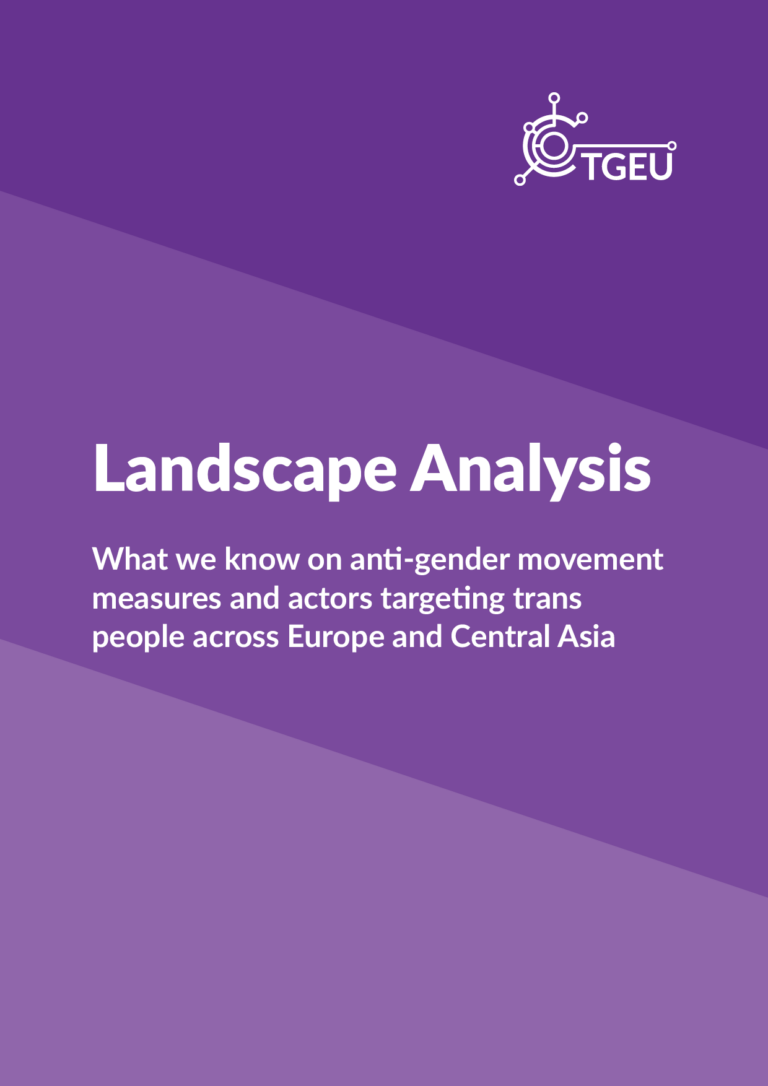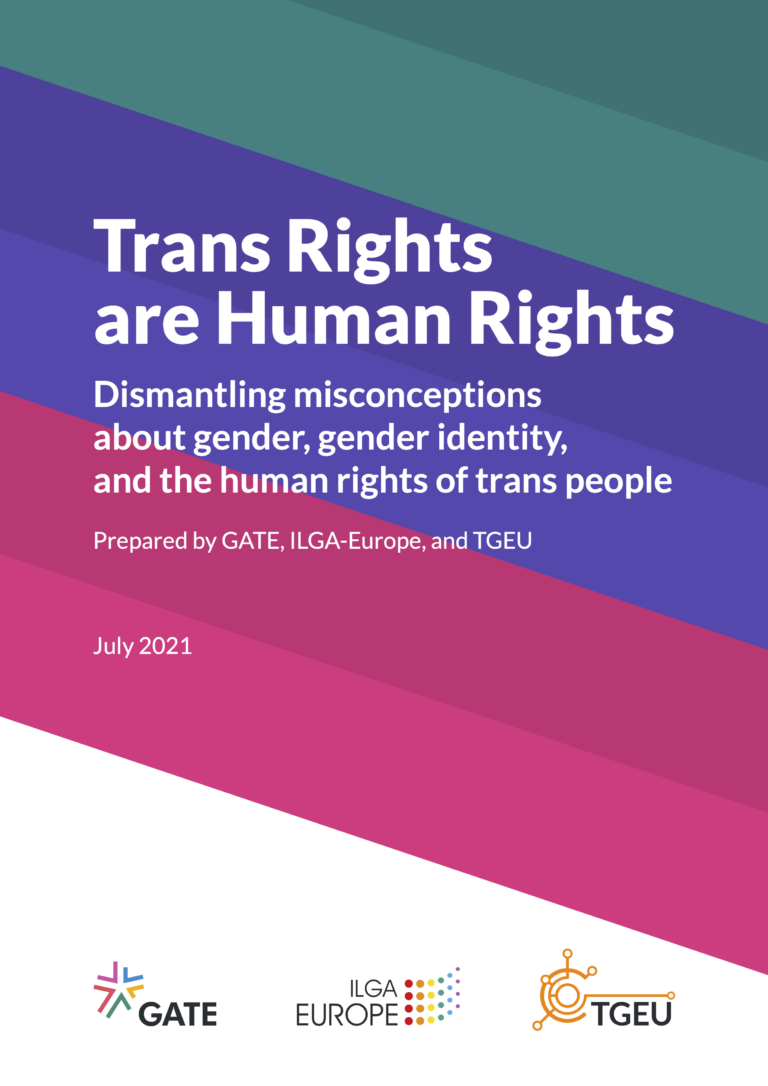Resilience against the anti-gender movement
The anti-gender movement seeks to undo progress made by feminist and LGBTI activists. This movement encapsulates a broad range of far-right actors. However, it is united by the belief that certain ‘gender ideologies’ degrade traditional family values.
What is the anti-gender movement?
The anti-gender movement is an umbrella term for a broad array of organisations and individuals who stand against rights relating to gender. They are united by their opposition to ‘gender ideology’.
The anti-gender movement is linked to concerted attacks against:
- Sexual and reproductive rights
- LGBTI rights
- Comprehensive sexuality education
- Trans rights.
How does the anti-gender movement endanger trans rights?
The influence of the anti-gender movement is clear across Europe. However, it is increasingly global and is:
- Gaining ground in public discourse and in access to decision-makers in power
- Well-resourced
- Co-opts the language of human rights
- Has made significant gains in recent years in rollbacks of progressive law and policy.
The anti-gender movement is well coordinated. Meetings and cross-regional convenings create alliances between far-right, religious, and anti-trans feminist actors, which facilitates increasingly rapid dissemination of tactics and intel across borders. This expansion is concerning for trans rights as attacks on gender equality and trans rights are part of the anti-gender movement’s political goals.
What does TGEU do?
TGEU is engaged in vital research to understand the anti-gender movement and its impact on public and political discourse. We use this research to inform the community and policymakers on the threats posed by anti-gender actors to trans rights. We also create materials and host workshops to support activists in countering anti-gender narratives. This includes toolkits for more effective messaging and guides to create impactful political campaigns.











